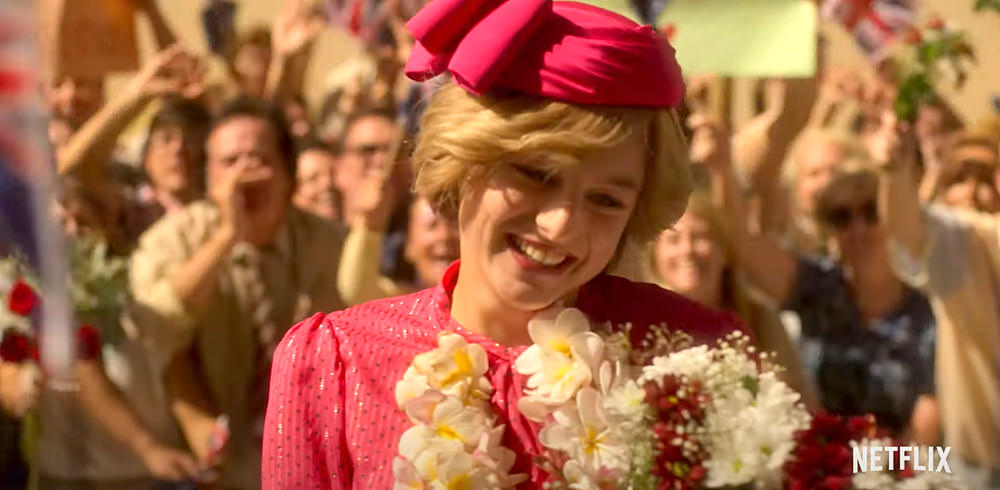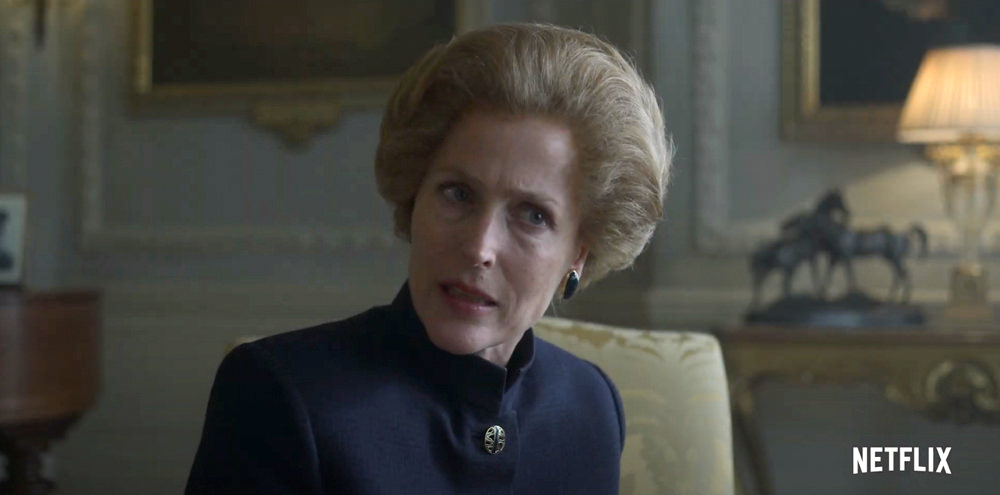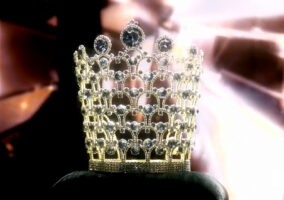
The review embargo has lifted on season 4 of The Crown and folks have been asking us to weigh in. We’ll be doing reviews of each of the episodes starting on Sunday (the day it drops), but since everyone’s so curious about how the show is going to handle the Diana and Thatcher years, we’re happy to give our thoughts.
They kinda nailed it, to our intense surprise. Show creator and writer Peter Morgan isn’t the best when it comes to centering the inner lives of female characters. Just look at how many episodes of The Crown were devoted to someone who will never wear one: Prince Phillip, who got an entire episode devoted to his man-feelings about astronauts last season. Or note how the show has never given Elizabeth a female friend, even though she has been surrounded and advised by women of the court for her entire reign, with friendships that have spanned a half-century or more. Watching The Crown, you’d think the only women she spoke to for 50 years were her mother, her sister and Jackie Kennedy. We had more than enough reason, given this rather glaring blind spot, to believe that the show would not be able to present two of the most fascinating and influential British women of the 20th Century in a manner that did either of them justice – especially since Morgan also has a predilection for “gilding the Lilibet,” as we put it last season; meaning that the show has always been somewhat reluctant to be too critical of The Queen, preferring to constantly position her at the mercy of gray-suited men or repeatedly having to educate outsiders on the importance and difficulty of her role. We went into the season assuming Diana would be portrayed as a troublesome outsider and Thatcher as a threat to the Queen’s power. That didn’t happen; not exactly.
A dramatization of the Charles and Diana marriage has so many potential pitfalls that we doubt any writer could get it completely correct. The image of Diana over the years has been elevated to near-sainthood, while the history of her marriage has tended to be written as some sort of fractured fairy tale; the story of a wide-eyed maiden who got done wrong by her dastardly prince. Morgan has done a fairly admirable job of providing some balance to his portrayal of the marriage, helped tremendously by the fact that the show has been following Charles’ life from boyhood, spending a decent amount of time highlighting the dysfunctional way he was parented and the effects of being an heir-in-waiting for an entire lifespan. When Charles mistreats Diana – as he is shown doing repeatedly – we are reminded of all the ways in which the show depicted the limits of his upbringing and character. We understand why Charles acts the way he does because as viewers of the show, we’ve been shown his whole life up till the point he meets Diana Spencer.

As for the one-time Princess of Wales, we’ve hinted at this a few times when we weren’t allowed to talk about it, but we’ll say it plainly now: Emma Corrin does a simply amazing job bringing the youthful, coquettish Diana back to full life. One could quibble about whether they get her ’80s hair and makeup correct or whether Corrin resembles her enough, but there are moments when she gets Diana so right, it will take your breath away – especially when she nails that Diana trait of tilting her head and smirking, while bringing all the focus to her ice-blue eyes. And yes, we said “smirking,” because while this Diana is portrayed as naive and desperately wanting to be loved, Corrin and Morgan manage to thread the needle on the more problematic aspects of her personality; not just the eating disorder, which is graphically represented (to the point that there are viewer warnings at the start of certain episodes), but the immaturity, the fatal love of attention, and the petulance that sometimes defined her reign. The show does a very good job of hammering home the point that she was almost literally a child bride and that the marriage never should have happened. There’s no fairy tale here; only a real-life soap opera plotline that played out in front of billions.
That’s part of the reason why this season works so well. Some of the clumsiest episodes of previous seasons tended to try too hard to make the marriage of Phillip and Elizabeth seem much more dramatic than it ever was. In other words, one of the more common complaints about the series in prior seasons was that it tried to turn the story of some fairly dull people into a scintillating soap opera. There’s no strain in the attempt this time because the story they’re trying to tell really was that melodramatic. In fact, this season does a pretty good job of showing that the family was wholly unprepared to deal with someone like Diana because they’re all so removed from their own emotions that they found themselves completely puzzled by this person who seemed to be nothing but emotions. We will say this, however: Be warned that one of the most iconic Diana moments of all time isn’t depicted and we suspect the outcry over this will be great. Morgan always was a little odd in his choices of what to depict and what to leave out. Princess Anne’s marital troubles also get mentioned, but just as she was last season, she’s ignored a bit too much.

As for Gillian Anderson, she does an amazing, if highly unusual and distracting job of bringing Margaret Thatcher to life. Again, we feel like we have to warn folks: she makes some odd choices as an actress and it took a good while for her strained portrayal of the controversial Prime Minister to settle in and make sense. She doesn’t appear to be attempting pure mimicry, but there’s a constant sense that her facial tics and vocal affectations are a lot of hard work to keep up. Thatcher famously modulated her voice and speaking style to come off more commanding, but she was a consummate politician and she was able to make her affectations appear smooth and effortless. Anderson never stops looking like someone trying to make her voice sound a certain way, her face look a certain way. The strain sometimes comes off exhausting, which is an interesting way to portray the Iron Lady. In the end, she manages a highly nuanced and unforgettable performance that’s likely to snag her some nominations, but there were times when the broadness of her choices felt more appropriate for a stage performance than something for television.
Olivia Colman has settled into her role as Elizabeth quite nicely. She still appears a bit too chipper and ingratiating at times, but she’s gotten very good at depicting that subtle moment when one has gone from the sovereign’s good graces to her bad side. And there’s a wonderful moment with her and Corrin that shows just how badly Diana was matched to this stern and cold family, who had no idea what to do with her. But it’s her scenes with Anderson that crackle with a strange sort of energy. Elizabeth is delighted at the prospect of weekly meetings with a female prime minister, only to find out from the get-go that the two women have very little in common, but an enormous amount of mutual respect. Morgan tries to inject a little soap opera into their dynamic, but the two actresses are too good to let such attempts get in the way of their performances.
We’ll be back on Monday with recaps and reviews of individual episodes, but we’re here to tell you: The Crown season 4 is good.
[Photo Credit: Netflix]
“Ma Rainey” Star Viola Davis Talks Community, Humanity and Demanding Her Worth for InStyle Magazine Next Post:
“Dune” Star Zendaya Opens Up to Her Friend Timothée Chalamet for ELLE Magazine
Please review our Community Guidelines before posting a comment. Thank you!



